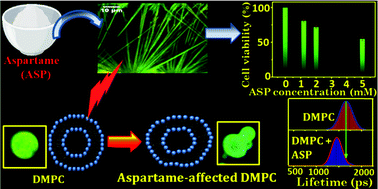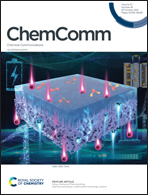Self-assembly of artificial sweetener aspartame adversely affects phospholipid membranes: plausible reason for its deleterious effects†
Abstract
The prolonged intake of the artificial sweetener aspartame is known to have deleterious effects. Our biophysical experimentations indicate that aspartame forms self-assembled cytotoxic fibrillar etiologies that affect the intrinsic integrity of the phospholipid membrane bilayer through electrostatic interaction and hydrophobic insertion, thereby making the membrane less rigid and more heterogeneous.



 Please wait while we load your content...
Please wait while we load your content...